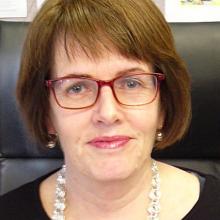
The Otago relief teacher pool has about 44 relievers available to fill in for ill teachers, but during term 2 and 3 this year, there had been more than 40 times when the pool was unable to fill teaching positions.
Of the 61 schools that responded to the survey, 52 (85.2%) said they were unable to put a teacher in front of one of their classes at least once during that time.
Ten schools reported they had that issue more than four times in the past two terms.
Most of the affected schools said the principal stepped in to fill the voids, or affected classes were split up and spread over other classes for the day.
OPPA chairwoman and Musselburgh School principal Debbie Smith said there had been instances in some Southland schools where principals had to tell parents not to send certain class levels to school because their teacher was sick and there was no-one to fill in.
She said concern was growing among Otago schools because it was impacting on pupils' education and the wellbeing of teaching staff.
"There was an awful lot of sickness around last term. It impacts not only on the children's learning, but it's also the teachers' health and wellbeing.
"Teachers are coming to school sick because they know relievers are so scarce, and they don't get better and of course it compounds the problem with their own health.
"The communities are starting to get a bit grumbly as well because their children's education is being affected.''
OPPA secretary Chris McKinlay said the relief pool had received more requests for teachers in the past term than it had received for the past year.
"If this continues, it's going to be a real issue.''
Mr McKinlay said the Otago relief pool was working hard to recruit more relievers, but the teacher registration system was creating "definite difficulties''.
He believed relief teachers were Subject to Confirmation registration because they did not work full-time.
That meant they had to participate in Teacher Education Refresh (TER) programmes which were out of town and cost several thousand dollars to attend, he said.
"For a lot of people, it was too much hassle and they let their registration lapse.
"They tell me there used to be 70-plus relievers in our reliever pool. There seems to be far less people doing that as a profession now.''
However, an Education Council New Zealand spokesman said many relief teachers, specialist teachers and teachers with Subject to Confirmation practising certificates were not required to do TER programmes.
"If a teacher is registered with the Education Council and holds Subject to Confirmation certification, they will not have to complete the TER programme.
"The Teacher Education Refresh programme is for provisionally certificated teachers who have not been recommended for full certification after first registering six or more years ago, and for those teachers applying for registration with the Education
Council for the first time whose qualification was completed six or more years ago.
"The programme was designed to ensure that teachers are up-to-date and that they have the skills and knowledge to teach when they haven't had opportunities to embed the theory they learned in their teacher education.
"Evidence shows that the quality of teaching, and education leadership, have the biggest effect on raising achievement in our schools, which is why TER is so important.
"Based on feedback from the profession, we've made some enhancements like up-front cost reductions, pay-by-module and online study to make it easier for TER participants.''
Mrs Smith said another problem was Dunedin was a difficult city to get permanent teaching positions in.
"A lot of teachers coming out of teachers' college would maybe get long term relieving positions or fixed term positions, but often not permanent positions.
"If they wanted to go to Auckland, they would get a permanent position, but if they wanted to stay in Dunedin, it would be quite hard.
"So often they go into another profession where they can get full-time work.''
Many were also put off by the work conditions once in full-time teaching, she said.
"Those first couple of years are jolly hard for teachers to get their heads around curriculum, behaviour management, school systems, communities, parents - it's a massive job. Not one of those 9-5 jobs.
"There's myriad factors.''












